History of the Society
The Royal Society of New South Wales, Australia traces its origins to the Philosophical Society of Australasia, established on 27 June 1821, which was the first scientific society in the then British colony of New South Wales.
The Society was formed by Dr James Bowman, Dr Henry Douglass, both medical practitioners, Judge Barron Field, a justice of the Supreme Court, Major Frederick Goulburn, the Colonial Secretary, Captain Francis Irvine, an Army officer and farmer, and Edward Wollstonecraft, a merchant, “with a view to enquiring into the various branches of physical science of this vast continent and its adjacent regions”. On his arrival in Sydney late in 1821 the newly-appointed Governor, Sir Thomas Brisbane, was offered and accepted the position of President.
Following a period of informal activity, with the encouragement of Dr Douglass, the Society was revitalised and renamed the Australian Philosophical Society on 19 January 1850. In 1855, the year of the establishment of the Parliament of NSW, the Society was renamed The Philosophical Society of New South Wales. On 12 December 1866, Queen Victoria granted Royal Assent to the Society and it was renamed again as The Royal Society of New South Wales. The Society was incorporated by an Act of the New South Wales Parliament in 1881.
Throughout its history, the Society has done much to foster local research, particularly in science, through meetings, symposia, publications and international scientific exchange, and has supported and fostered the endeavours of other organisations dedicated to the furtherance of knowledge.
For a more complete early history, see Tyler (2010) "Science for Gentlemen – The Royal Society of New South Wales in the Nineteenth Century".
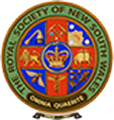 The original seal of the Society was designed by Archibald Liversidge, who, at the time of incorporation (16 December 1881), was Honorary Secretary of the Society. On 27 April 2011, the Council adopted the motto "omnia quaerite" (question everything). A more detailed history of the seal, together with the meanings of the symbols, may be downloaded here.
The original seal of the Society was designed by Archibald Liversidge, who, at the time of incorporation (16 December 1881), was Honorary Secretary of the Society. On 27 April 2011, the Council adopted the motto "omnia quaerite" (question everything). A more detailed history of the seal, together with the meanings of the symbols, may be downloaded here.
Presidents of the Society
A list of all Presidents of the Society, previous and current is available from this link.
Governance
This page describes the Society’s governance and includes the following matters, accessible from the links below:
- Governance Arrangements
- Council and Office-Bearers
- Council Committees
- Royal Society of NSW Act and Rules
- Strategic Plan
- Society Policies
- Recent Annual Reports
Governance Arrangements
The current governance arrangements date from the formal incorporation of the Royal Society of New South Wales by an Act of the New South Wales Parliament in 1881. (For the period from 1821 to 1881, see History.)
The Society is governed by a Council that is elected annually. The Council manages all the Society’s business in accordance with its Act and Rules.
Under revised rules, most recently updated by electronic ballot of the members on 13 February 2023 in advance of the 2023 elections, the Council comprises the President, the Vice-President, the immediate Past President (if available, and only for the first year after leaving the role of President), the Secretary, the Treasurer, the Librarian, the Webmaster, the chairperson (or nominee) of each of the Hunter, Southern Highlands, and Western NSW branches, six elected Members or Fellows and two appointed members (See Rule 18 that described the transition arrangements in 2023–2024). All Council members must be Members or Fellows of the Society. The Executive Committee comprises the President, the Vice-President, the immediate Past President (if available, for the first year after leaving the role of President), the Secretary, the Treasurer, and one Council member appointed by resolution of the Council.
Council and Office-Bearers 2024–25
As of the close of the 2024 Annual General Meeting held on 17 April 2024, the current Council and office-bearers of the Society are:
| Patron | Her Excellency The Honourable Margaret Beazley AC KC, Governor of New South Wales |
| President | Dr Susan Pond AM FRSN (until April 2025) |
| Vice-President | Emeritus Professor Peter Shergold AC FRSN (until April 2025) |
| Secretary | Dr Donald Hector AM FRSN (until April 2025) |
| Treasurer | Emeritus Professor Peter Wells FRSN (until April 2026) |
| Librarian | Emeritus Professor Stephen Garton AM FRSN (until April 2025) |
| Webmaster | Emeritus Professor Lindsay Botten FRSN (until April 2025) |
| Councillors | Professor Sean Brawley FRSN (until April 2026) |
| Professor Sally Cripps FRSN (until April 2026) Cdre (Ret'd) Vince Di Pietro AM CSC FRSN (until April 2026) Mr Medy Hassan OAM FRSN (until April 2026) Dr Davina Jackson FRSN (until April 2025) Dr Liz Killen MRSN (until April 2026) Emeritus Professor Robert Marks FRSN (until April 2026) Emeritus Professor Christina Slade FRSN (until April 2025) |
|
| Branch Representatives | |
| Hunter Southern Highlands Western NSW |
Adjunct Professor Robert Whittaker AM FRSN (until April 2025) Dr Michael de Percy MRSN (until April 2025) Professor Mark Evans FRSN (until April 2025) |
Council Committees
The President chairs meetings of the Council and general meetings of the Society.
The Council appoints other committees from time to time to attend to specific matters. Committees may comprise both Council members and other Society members.
2024–25
The current Committees, together with the names of their Chairs and Secretaries are listed below. The link associated with each Committee name refers to the information page for that Committee— providing an outline of the Committee’s role, its Terms of Reference, and its current composition.
| Committee | Chair | Secretary |
| Executive | Dr Susan Pond AM FRSN | Dr Donald Hector AM FRSN |
| Awards | Prof. Merlin Crossley FRSN | Emer. Prof. Annabelle Duncan PSM FRSN |
| Fellows and Members Assessment |
Prof. Sean Brawley FRSN | Mr Trevor Danos AM FRSN |
| Library and Assets | Emer. Prof. Stephen Garton AM FRSN | TBC |
| Philanthropy | Dr Susan Pond AM FRSN | TBC |
| Program | Emer. Prof. Christina Slade FRSN | Dr Elizabeth Deane FRSN |
| Publishing | Dr Davina Jackson FRSN | Emer. Prof. Trevor Hambley FRSN |
| RSNSW & Learned Academies Forum |
Emer. Prof. Christina Slade FRSN | Dr Elizabeth Deane FRSN |
Strategic Plan
The 2024–2029 Master Plan of the Society, as approved by the Council in March 2024, is now online.
Distinguished Fellows of the Society
The honour Distinguished Fellow of the Royal Society of New South Wales is awarded to internationally-distinguished contributors to science, art, literature or philosophy. The number of Distinguished Fellows is limited to 25 at any time. Distinguished Fellows are entitled to use the postnominal DistFRSN.
At present, there are 19 Distinguished Fellows, the biographies of whom can be accessed from the links below. Information about late Distinguished Fellows is accessible through this link.
- Professor Michael Archer AM DistFRSN FAA
- Professor The Honourable Dame Marie Bashir AD CVO DistFRSN
- Emeritus Professor The Honourable Peter Baume AC DistFRSN
- Professor Elizabeth Blackburn AC FRS DistFRSN FAA
- Professor Robert Clark AO DistFRSN FAA
- Professor Peter Doherty AC FRS FRSE DistFRSN FAA
- Dr Cathy Foley AO PSM DistFRSN FAA FTSE HonFAIP FInstP
- The Honourable Dr Barry Jones AC DistFRSN FAA FAHA FTSE FASSA
- Mr Thomas Keneally AO DistFRSN
- Professor Kurt Lambeck AC FRS FAA DistFRSN
- Emeritus Scientia Professor Eugenie Lumbers AM DistFRSN FAA
- Sir Anthony Mason AC KBE DistFRSN FASSA HonFAIB KC
- Professor George Paxinos AO DistFRSN FASSA FAA
- Professor Brian Schmidt AC FRS DistFRSN FAA FTSE
- Professor Michelle Simmons AO FRS DistFRSN FAA
- Emeritus Professor Ian Sloan AO DistFRSN FAA
- Professor Sir Fraser Stoddart FRS DistFRSN FAA FRSE FRSC
- Professor Jill Trewhella DistFRSN FAAAS FLANL
- Professor Bruce Warren OAM DistFRSN FRCPath
Professor Michael Archer AM DistFRSN FAA
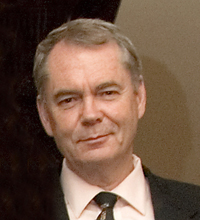 Michael Archer is a distinguished biologist and palaeobiologist. Born in Sydney, he moved to the United States and trained as an undergraduate in geology and biology at Princeton University and gained consecutive Fulbright Scholarships for palaeontological research at the Western Australian Museum from 1967 to 1969. He completed a PhD in Zoology at the University of Western Australia in 1976. A vertebrate palaeontologist and mammalogist, he was Curator of Mammals at the Queensland Museum from 1972 to 1978 and then moved to the University of NSW, where he was appointed Professor of Biological Science in 1989. He became Director of the Australian Museum in Sydney in 1999 until he returned to the University of NSW in 2004 as Dean of the Faculty of Science. He has recently returned to a position of Professor in the Faculty.
Michael Archer is a distinguished biologist and palaeobiologist. Born in Sydney, he moved to the United States and trained as an undergraduate in geology and biology at Princeton University and gained consecutive Fulbright Scholarships for palaeontological research at the Western Australian Museum from 1967 to 1969. He completed a PhD in Zoology at the University of Western Australia in 1976. A vertebrate palaeontologist and mammalogist, he was Curator of Mammals at the Queensland Museum from 1972 to 1978 and then moved to the University of NSW, where he was appointed Professor of Biological Science in 1989. He became Director of the Australian Museum in Sydney in 1999 until he returned to the University of NSW in 2004 as Dean of the Faculty of Science. He has recently returned to a position of Professor in the Faculty.
He has authored several major works which reflect his scientific achievements. These include Fossil Mammals of Australia and New Guinea, Riversleigh and Predators with Pouches. His interest in social developments is seen from his involvement with the Children's Creative Workshop Advisory Board, the TAFE Advisory Board, the World Wildlife Fund Scientific Advisory Board, and as trustee of the Australian Geographical Society.
In 1990 Professor Archer won the inaugural Eureka Prize for the Promotion of Science. He is a Fellow of the Royal Zoological Society and a Fellow of the Australian Academy of Science and was honoured as a Member of the Order of Australia in 2008.
Professor The Honourable Dame Marie Bashir AD CVO DistFRSN
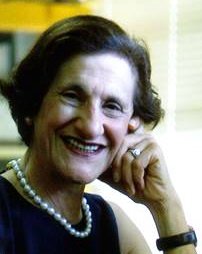 Upon her graduation in medicine, Bashir took up a posting as a junior resident medical officer at St Vincent's Hospital and then to the Royal Alexandra Hospital for Children. After first living in Elizabeth Bay, Bashir and Shehadie moved their family to Pendle Hill in Western Sydney, where Bashir worked as a General Practitioner. However, wanting to assist people suffering from mental illnesses, Bashir eventually decided to take up postgraduate studies in Psychiatry.
Upon her graduation in medicine, Bashir took up a posting as a junior resident medical officer at St Vincent's Hospital and then to the Royal Alexandra Hospital for Children. After first living in Elizabeth Bay, Bashir and Shehadie moved their family to Pendle Hill in Western Sydney, where Bashir worked as a General Practitioner. However, wanting to assist people suffering from mental illnesses, Bashir eventually decided to take up postgraduate studies in Psychiatry.
From 1990 to 1992, she served on the New South Wales Women's Advisory Council. In 1993, she was appointed as Clinical Professor of Psychiatry at the University of Sydney and, in 1994, as the Clinical Director of Mental Health Services for the Central Sydney Area. This was a time of major reform in mental health service delivery, which contributed to substantial change in the provision of public sector mental health services. She served until 2001. In her university role, Bashir was instrumental in developing collaborative teaching programs between colleagues in Vietnam and Thailand with Australian psychiatrists, chairing the University of New South Wales Third World Health Group (1995–2000) and supporting various financial and social support programmes for International students.
In early 2001, Bashir was appointed Governor of New South Wales, making her the state's first female governor and the first governor of any Australian state of Lebanese descent.
Marie Bashir has given extraordinary and pre-eminent service to the administration, public life and people of New South Wales, to medicine, particularly as an advocate for improved mental health outcomes for the young, marginalised and disadvantaged, to international relations, through the promotion of collaborative health programs and as a leader in tertiary education.
During her term as Governor of NSW, she was Vice-Regal Patron of the Society.
Emeritus Professor The Honourable Peter Baume AC DistFRSN
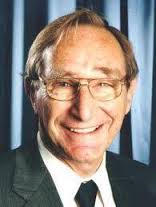 From 1974-91 Peter Baume served as a Senator for New South Wales. He was successively Government Deputy-Whip, Government Whip, Minister for Aboriginal Affairs, Minister Assisting the Minister for National Development and Energy, Minister for Health, Minister for Education and a Minister in the Cabinet. He was Chair of Senate Standing Committees and of Senate Estimates Committees before becoming a Minister in 1980. He was a member of the Opposition Executive until 1987 when he resigned over an issue of principle. He was a Temporary Chairman of Committees from 1987 until his resignation from the Senate in 1991 to come to the University of New South Wales.
From 1974-91 Peter Baume served as a Senator for New South Wales. He was successively Government Deputy-Whip, Government Whip, Minister for Aboriginal Affairs, Minister Assisting the Minister for National Development and Energy, Minister for Health, Minister for Education and a Minister in the Cabinet. He was Chair of Senate Standing Committees and of Senate Estimates Committees before becoming a Minister in 1980. He was a member of the Opposition Executive until 1987 when he resigned over an issue of principle. He was a Temporary Chairman of Committees from 1987 until his resignation from the Senate in 1991 to come to the University of New South Wales.
From 1991 to 2000 he was a Professor of Community Medicine and from 1991 to 1995 and again from 1997 to 2000 he was Head of the School of Community Medicine within the University of New South Wales. In the intervening two years he administered the School of Community Medicine. During the period from 1991 to 2000, he served on various committees of the Faculty of Medicine, on promotions committees, on selection committees, on School review committees, on various management committees and on the Honorary Degrees Committee of the University of New South Wales.
From 1986 to 2006 he served on the Council of the Australian National University, and served on a number of committees of that University before his election as Chancellor in 1994. That appointment was renewed in 1997, 2000 and in 2003. As Chancellor he advised the Vice-Chancellor, chaired all committees of the University at which he appeared, chaired the Council of the University and presided at most conferrings of degrees and awards.
Professor Elizabeth Blackburn AC FRS DistFRSN FAA
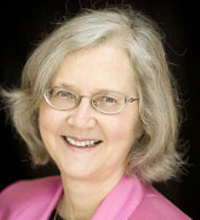 Elizabeth H. Blackburn, Morris Herztein Professor of Biology and Physiology in the Department of Biochemistry and Biophysics at the University of California, San Francisco, is a leader in the area of telomere and telomerase research. She discovered the molecular nature of telomeres - the ends of eukaryotic chromosomes that serve as protective caps essential for preserving genetic information and the ribonucleoprotein enzyme telomerase. Professor Blackburn and her research team are working with various cells including human cells, with the goal of understanding telomerase and telomere biology.
Elizabeth H. Blackburn, Morris Herztein Professor of Biology and Physiology in the Department of Biochemistry and Biophysics at the University of California, San Francisco, is a leader in the area of telomere and telomerase research. She discovered the molecular nature of telomeres - the ends of eukaryotic chromosomes that serve as protective caps essential for preserving genetic information and the ribonucleoprotein enzyme telomerase. Professor Blackburn and her research team are working with various cells including human cells, with the goal of understanding telomerase and telomere biology.
Professor Blackburn earned her BSc (1970) and MSc (1972) degrees from the University of Melbourne, and her PhD (1975) from the University of Cambridge in England. She did her postdoctoral work in molecular and cellular biology from 1975 to 1977 at Yale.
In 1978, Professor Blackburn joined the faculty at the University of California at Berkeley in the Department of Molecular Biology. In 1990, she joined the Department of Microbiology and Immunology at UC San Francisco, where she served as Department Chair from 1993 to 1999. Blackburn is currently a faculty member in the Department of Biochemistry and Biophysics at UCSF. She is also a Non- Resident Fellow of the Salk Institute.
Throughout her career, Blackburn has been honoured by her peers as the recipient of many prestigious awards. She was elected President of the American Society for Cell Biology for the year 1998. Blackburn is an elected Fellow of the American Academy of Arts and Sciences (1991), the Royal Society of London (1992), the American Academy of Microbiology (1993), and the American Association for the Advancement of Science (2000).
She was elected Foreign Associate of the National Academy of Sciences in 1993, and was elected as a Member of the Institute of Medicine in 2000. She was awarded the Albert Lasker Medical Research Award in Basic Medical Research (2006). In 2007 she was named one of TIME Magazine.s 100 Most influential People and she is the 2008 North American Laureate for L'Oreal-UNESCO For Women in Science.
In 2009, Dr Blackburn was awarded the Nobel Prize in Physiology or Medicine.
Professor Robert Clark AO DistFRSN FAA
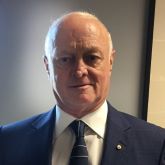
Robert Clark was formerly an officer in the Royal Australian Navy, a Lecturer and Fellow of The Queen’s College at the University of Oxford, and Scientia Professor and Chair Professor of Experimental Physics at the University of New South Wales. As an Australian Government Federation Fellow, he was the founding Director of the ARC Centre of Excellence for Quantum Computer Technology over it first decade. More recently, he was Chief Defence Scientist in the Australian Department of Defence, CEO of the Defence Science and Technology Organisation and a member of Australia’s Defence Committee. In that role, he was the Australian Principal of The Technical Cooperation Program between Australia, the US, the UK, Canada and New Zealand and a member of the Prime Minister’s Science, Engineering and Innovation Council. He is a Fellow of the Australian Academy of Science and is currently a Senior Fellow at the Australian Strategic Policy Institute. He has been privileged to receive a number of awards and honours, that include the Australian Museum CSIRO Eureka Prize for Leadership in Science, the Australian Centenary Medal, the Australian Defence Medal, the United States of America Secretary of Defence Medal, two medal awards for distinguished service from US government agencies and is an Officer in the Order of Australia. He has an interest in running and has completed the New York City, Berlin, Paris and Tokyo marathons.
Professor Peter Doherty AC FRS FRSE DistFRSN FAA
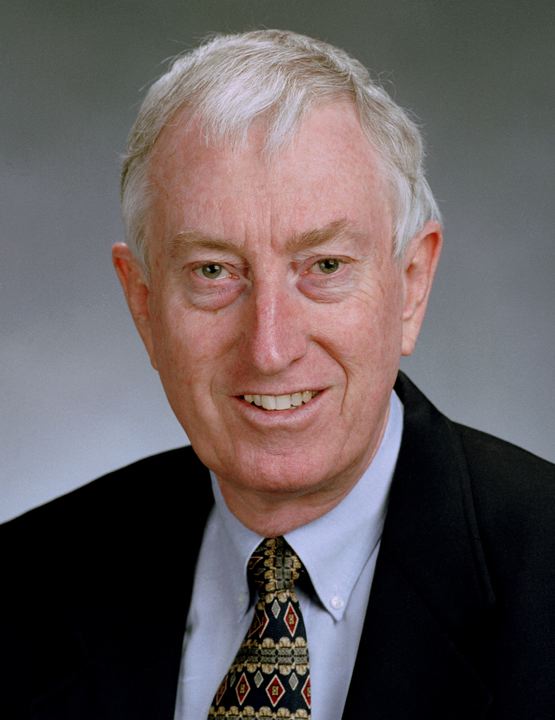 Peter Charles Doherty is a distinguished immunologist. He was educated at the University of Queensland and the University of Edinburgh, Scotland. Professor Doherty's research focuses on the way in which the body's immune system protects against viruses. With colleague Rolf Zinkernagel, he discovered that T-cells recognise infected cells by identifying two molecules on the surface of the cell: the virus antigen and a molecule of the major histocompatibility complex (MHC). For this work, they were awarded the 1996 Nobel Prize in Physiology or Medicine. Professor Doherty was Australian of the year in 1997.
Peter Charles Doherty is a distinguished immunologist. He was educated at the University of Queensland and the University of Edinburgh, Scotland. Professor Doherty's research focuses on the way in which the body's immune system protects against viruses. With colleague Rolf Zinkernagel, he discovered that T-cells recognise infected cells by identifying two molecules on the surface of the cell: the virus antigen and a molecule of the major histocompatibility complex (MHC). For this work, they were awarded the 1996 Nobel Prize in Physiology or Medicine. Professor Doherty was Australian of the year in 1997.
Dr Cathy Foley AO DistFRSN FAA FTSE HonFAIP FInstP
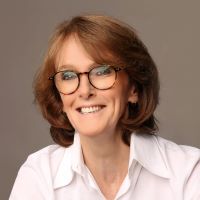 After an illustrious research and translation career in solid-state physics and its applications, combining quantum physics and material science, Dr Foley became the first dedicated Chief Scientist of the Commonwealth Scientific and Research Organisation (CSIRO) in 2018 and Australia’s Chief Scientist in 2021. Dr Foley has also made significant contributions in Australia and internationally not only in science & technology but also as President and executive member of several peak bodies in the areas of education, science, and technology and through her advisory roles for numerous research and teaching institutions. She is a strong champion for STEM and an inspiration to the next generation of leaders.
After an illustrious research and translation career in solid-state physics and its applications, combining quantum physics and material science, Dr Foley became the first dedicated Chief Scientist of the Commonwealth Scientific and Research Organisation (CSIRO) in 2018 and Australia’s Chief Scientist in 2021. Dr Foley has also made significant contributions in Australia and internationally not only in science & technology but also as President and executive member of several peak bodies in the areas of education, science, and technology and through her advisory roles for numerous research and teaching institutions. She is a strong champion for STEM and an inspiration to the next generation of leaders.
The Honourable Dr Barry Jones AC DistFRSN FAA FAHA FTSE FASSA
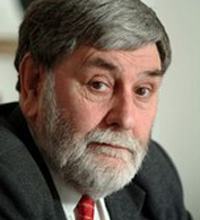 Dr Barry Jones AC DistFRSN FAA FAHA FTSE FASSA has no formal training as a scientist but has had a passionate interest in history of philosophy of science from childhood and, as a politician, work passionately to secure appropriate recognition of the importance of scientific research in Australia’s intellectual, social, cultural and economic development. He was a member of the Victorian Legislative Assembly from 1972 to 1977 and of the Australian House of Representatives from 1977 to 1998. He was Australia’s longest serving Minister for Science from 1983 to 1990. Barry Jones identified major issues and placed them firmly on the political agenda long before their importance was recognised widely by the community. These included the post-industrial decline of Australian manufacturing, the need to embrace the information revolution, global climate change, recognising the importance of Antarctica for scientific research and the importance of engagement in the biotechnology revolution. He has been awarded seven honorary doctorates and is the only person to have been elected as a Fellow of four of Australia’s five learned Academies.
Dr Barry Jones AC DistFRSN FAA FAHA FTSE FASSA has no formal training as a scientist but has had a passionate interest in history of philosophy of science from childhood and, as a politician, work passionately to secure appropriate recognition of the importance of scientific research in Australia’s intellectual, social, cultural and economic development. He was a member of the Victorian Legislative Assembly from 1972 to 1977 and of the Australian House of Representatives from 1977 to 1998. He was Australia’s longest serving Minister for Science from 1983 to 1990. Barry Jones identified major issues and placed them firmly on the political agenda long before their importance was recognised widely by the community. These included the post-industrial decline of Australian manufacturing, the need to embrace the information revolution, global climate change, recognising the importance of Antarctica for scientific research and the importance of engagement in the biotechnology revolution. He has been awarded seven honorary doctorates and is the only person to have been elected as a Fellow of four of Australia’s five learned Academies.
Mr Thomas Keneally AO DistFRSN
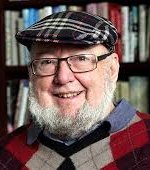 Thomas Keneally, Living National Treasure, author, historian and winner of literary awards in many countries, expresses Australian character and experience to greatly enrich our understanding of who we are as cultural, political and social beings. From The Chant of Jimmy Blacksmith through Schindler’s Ark to current work on Mungo Man, the meaning and importance of history are his major themes.
Thomas Keneally, Living National Treasure, author, historian and winner of literary awards in many countries, expresses Australian character and experience to greatly enrich our understanding of who we are as cultural, political and social beings. From The Chant of Jimmy Blacksmith through Schindler’s Ark to current work on Mungo Man, the meaning and importance of history are his major themes.
Professor Kurt Lambeck AC FRS DistFRSN FAA
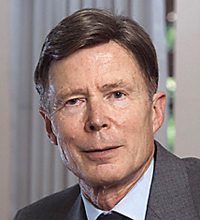 Kurt Lambeck has been at the Australian National University since 1977, including ten years as Director of the Research School of Earth Sciences. He has been a President of the Australian Academy of Science and a member of the Antarctic Ecosystem and Environment CRC. Before returning to Australia he was Professor at the University of Paris. He has also worked at the Smithsonian and Harvard Observatories in Cambridge, USA. He has studied at the University of New South Wales, the Technical University of Delft, Netherlands, the National Technical University of Athens and Oxford University from which he obtained DPhil and DSc degrees. He has held visiting appointments in Belgium, Britain, Canada, France, Netherlands, Norway and Sweden.
Kurt Lambeck has been at the Australian National University since 1977, including ten years as Director of the Research School of Earth Sciences. He has been a President of the Australian Academy of Science and a member of the Antarctic Ecosystem and Environment CRC. Before returning to Australia he was Professor at the University of Paris. He has also worked at the Smithsonian and Harvard Observatories in Cambridge, USA. He has studied at the University of New South Wales, the Technical University of Delft, Netherlands, the National Technical University of Athens and Oxford University from which he obtained DPhil and DSc degrees. He has held visiting appointments in Belgium, Britain, Canada, France, Netherlands, Norway and Sweden.
He was elected to the Australian Academy of Science in 1984 and to the Royal Society in 1994. He is a foreign member of the Royal Netherlands Academy of Arts and Sciences (1993), Norwegian Academy of Science and Letters (1994), Academia Europaea (1999), the Académie des Sciences, Institut de France (2005), and the US National Academy of Sciences (2009). He has received a number of international prizes and awards including the Tage Erlander Prize from the Swedish Research Council (2001), the Prix George Lemaître from the Université catholique de Louvain (2001), and the Eminent Scientist Award from the Japan Society for the Promotion of Science (2004). In Australia he was awarded the 2018 Prime Minister’s Prize for Science and was made a Companion on the Order of Australia in 2021.
He has published two books and more than 250 papers on subjects in geophysics, geology, geodesy, space science, celestial mechanics, environmental geoscience, and glaciology.
Emeritus Scientia Professor Eugenie Lumbers AM DistFRSN FAA
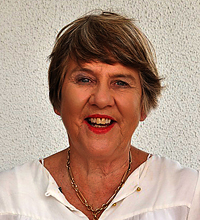 Eugenie Lumbers is an internationally respected authority on foetal and maternal physiology. For many years she has worked in cardiovascular and renal physiology, with particular reference to blood pressure regulation in the renin-angiotensin system. She graduated MBBS in Adelaide in 1965 and received an MD in 1970. She was awarded a DSc at the University of NSW in1986 where she was given a personal chair in 1988. She received the Vice Chancellor's Award for Teaching Excellence in 1997, became Scientia Professor in 1999 and Emeritus Scientia Professor in 2003. She was elected Fellow of the Australian Academy of Science in 2002.
Eugenie Lumbers is an internationally respected authority on foetal and maternal physiology. For many years she has worked in cardiovascular and renal physiology, with particular reference to blood pressure regulation in the renin-angiotensin system. She graduated MBBS in Adelaide in 1965 and received an MD in 1970. She was awarded a DSc at the University of NSW in1986 where she was given a personal chair in 1988. She received the Vice Chancellor's Award for Teaching Excellence in 1997, became Scientia Professor in 1999 and Emeritus Scientia Professor in 2003. She was elected Fellow of the Australian Academy of Science in 2002.
In 2007 she developed new research interests at the University of Newcastle and was awarded an NHMRC grant in 2008. She further expanded her research interests in 2009 with three other NHMRC grants. She received the Centenary Medal of Federation, Australia in 2001.
The Honourable Sir Anthony Mason AC KBE DistFRSN FASSA HonFAIB KC
Sir Anthony Mason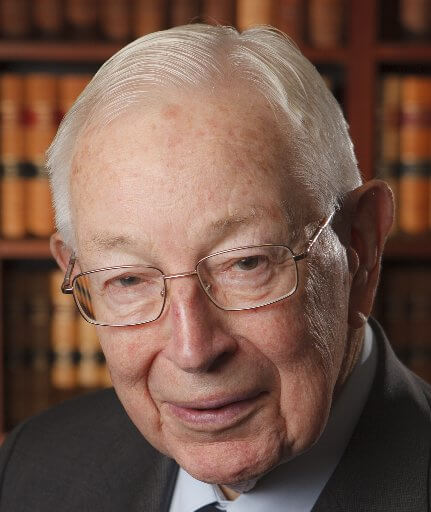 has helped to define justice in Australia and the world. His service in Australia as Chief Justice of the High Court of Australia and his international service as Justice of both the Hong Kong Court of Final Appeal and the Supreme Court of Fiji, and as President of the Court of Appeal of the Solomon Islands, forms a unique and enduring contribution. As Chancellor of the University of New South Wales and as Chair of the Council of the National Library, he has emphasised the importance of education as the foundation of a civilised society.
has helped to define justice in Australia and the world. His service in Australia as Chief Justice of the High Court of Australia and his international service as Justice of both the Hong Kong Court of Final Appeal and the Supreme Court of Fiji, and as President of the Court of Appeal of the Solomon Islands, forms a unique and enduring contribution. As Chancellor of the University of New South Wales and as Chair of the Council of the National Library, he has emphasised the importance of education as the foundation of a civilised society.
Professor George Paxinos AO DistFRSN FASSA FAA
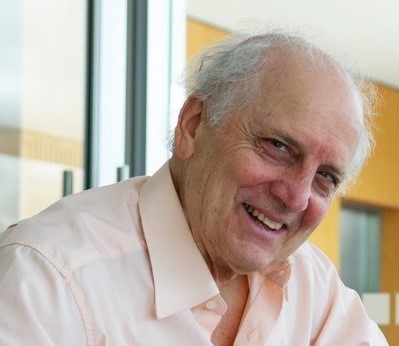 A Greek-Australian neuroscientist, Professor Paxinos completed his BA at The University of California at Berkeley, his PhD at McGill University, and then spent a postdoctoral year at Yale University before moving to UNSW, Sydney. He (with Charles Watson) is an author of The Rat Brain in Stereotaxic Coordinates which, with over 65,000 citations across its 7 Editions, it is the most cited Australian publication and the most cited neuroscience publication. His human brain atlases are the most accurate ones for identification of deep structures and are used in surgical theatres. In community impact, his 2018 discovery of the human endorestiform nucleus reached 412 million people across 70 countries. Professor Paxinos is credited with two paradigm shifts in his field of neuroscience. First, during a sabbatical at Cambridge in 1977, he learned immunohistochemistry and applied it for the first time in brain atlases. Secondly, in his avian brain atlas, he used neuromeric criteria to delineate the entire brain for the first time.
A Greek-Australian neuroscientist, Professor Paxinos completed his BA at The University of California at Berkeley, his PhD at McGill University, and then spent a postdoctoral year at Yale University before moving to UNSW, Sydney. He (with Charles Watson) is an author of The Rat Brain in Stereotaxic Coordinates which, with over 65,000 citations across its 7 Editions, it is the most cited Australian publication and the most cited neuroscience publication. His human brain atlases are the most accurate ones for identification of deep structures and are used in surgical theatres. In community impact, his 2018 discovery of the human endorestiform nucleus reached 412 million people across 70 countries. Professor Paxinos is credited with two paradigm shifts in his field of neuroscience. First, during a sabbatical at Cambridge in 1977, he learned immunohistochemistry and applied it for the first time in brain atlases. Secondly, in his avian brain atlas, he used neuromeric criteria to delineate the entire brain for the first time.
The recipient of many honours and prizes around the world, Professor Paxinos is an Officer in the General Division of the Order of Australia (2002). He was awarded the Royal Society of New South Wales Walter Burfitt Prize in 1992 and was elected to Fellowship (FRSN) in 2014.
Professor Brian Schmidt AC FRS DistFRSN FAA FTSE
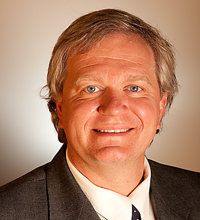 Brian Schmidt is Distinguished Professor at the Research School of Astronomy and Astrophysics, Australian National University. He was born in the US and educated at the University of Arizona and Harvard, from which he has both Masters and PhD degrees in astronomy. He moved to Australia in 1994. Brian Schmidt is an internationally renowned researcher and cosmology and the physics of supernovae and gamma-ray bursts. His pioneering work in radio astronomy leading the High-Z Supernovae Research Team led to the discovery that the expansion of universe is accelerating, an extraordinary discovery that provided the foundation for an entirely new conception of the universe. For this pioneering work he shared the 2011 Nobel Prize in Physics. He has received a number of prestigious international awards, including the Australian Academy of Science’s Pawsey Medal, the Shaw Prize in Astronomy and the Gruber Cosmology Prize. He was elected a fellow of the Royal Society in 2012.
Brian Schmidt is Distinguished Professor at the Research School of Astronomy and Astrophysics, Australian National University. He was born in the US and educated at the University of Arizona and Harvard, from which he has both Masters and PhD degrees in astronomy. He moved to Australia in 1994. Brian Schmidt is an internationally renowned researcher and cosmology and the physics of supernovae and gamma-ray bursts. His pioneering work in radio astronomy leading the High-Z Supernovae Research Team led to the discovery that the expansion of universe is accelerating, an extraordinary discovery that provided the foundation for an entirely new conception of the universe. For this pioneering work he shared the 2011 Nobel Prize in Physics. He has received a number of prestigious international awards, including the Australian Academy of Science’s Pawsey Medal, the Shaw Prize in Astronomy and the Gruber Cosmology Prize. He was elected a fellow of the Royal Society in 2012.
Professor Michelle Simmons AO FRS DistFRSN FAA FTSE
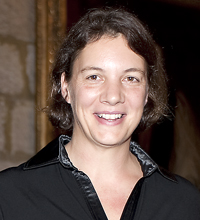 Michelle Simmons is a Federation Fellow and Director of the Atomic Fabrication Facility at the University of NSW. In the 1990s, she spent six years as a Research Fellow working with Professor Sir Michael Pepper FRS at the Cavendish Laboratory in Cambridge, UK, in quantum electronics. Her research in nanoelectronics combines molecular beam epitaxy and scanning tunnelling microscopy to develop novel electronic devices at the atomic scale. She has published more than 260 papers in refereed journals (with over 3200 citations), published a book on Nanotechnology, four book chapters on quantum electronics, has filed four patents and has presented over 50 invited and plenary presentations at international conferences.
Michelle Simmons is a Federation Fellow and Director of the Atomic Fabrication Facility at the University of NSW. In the 1990s, she spent six years as a Research Fellow working with Professor Sir Michael Pepper FRS at the Cavendish Laboratory in Cambridge, UK, in quantum electronics. Her research in nanoelectronics combines molecular beam epitaxy and scanning tunnelling microscopy to develop novel electronic devices at the atomic scale. She has published more than 260 papers in refereed journals (with over 3200 citations), published a book on Nanotechnology, four book chapters on quantum electronics, has filed four patents and has presented over 50 invited and plenary presentations at international conferences.
In 2005 she was awarded the Pawsey Medal by the Australian Academy of Science and in 2006 became one of the youngest elected Fellows of this Academy. Professor Simmons is the only women in Australia to have twice received a Federation Fellowship, the Australian Research Council's most prestigious award of this kind. She was one of the first women to be made a professor of physics in Australia.
Professor Michelle Simmons was named Australian of the Year for 2018, and was recently made a Fellow of the Royal Society of London.
Emeritus Professor Ian Sloan AO DistFRSN FAA
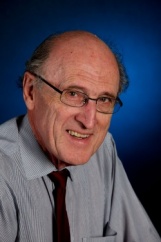 Ian Sloan is a Melbourne-born mathematician and physicist. He was educated at the Universities of Melbourne and Adelaide, and received a PhD in theoretical atomic physics from University College London. After a short period in industry, he joined the University of New South Wales (UNSW Sydney). Subsequently, he was appointed to a Personal Chair in Mathematics, served as Head of the School of Mathematics and Chair of the National Committee for Mathematics, and was appointed a Scientia Professor.
Ian Sloan is a Melbourne-born mathematician and physicist. He was educated at the Universities of Melbourne and Adelaide, and received a PhD in theoretical atomic physics from University College London. After a short period in industry, he joined the University of New South Wales (UNSW Sydney). Subsequently, he was appointed to a Personal Chair in Mathematics, served as Head of the School of Mathematics and Chair of the National Committee for Mathematics, and was appointed a Scientia Professor.
He began his research career in theoretical atomic and nuclear physics but later switched to computational mathematics, see “A fortunate scientific life” (pp. 19–26). In all, he has published more than 300 papers in theoretical physics and computational mathematics, with research recognised by the Lyle Medal of the Australian Academy of Science, the Szekeres Medal of the Australian Mathematical Society, the ANZIAM Medal, and the Information Based Complexity Prize. He is a Fellow of the Australian and American Mathematical Societies and the (US) Society for Industrial and Applied Mathematics.
He has served as President of the International Council for Industrial and Applied Mathematics, the Australian Mathematical Society, and the Royal Society of New South Wales. He was elected a Fellow of the Australian Academy of Science in 1983, a Fellow of the Royal Society of New South Wales in 2014, and in 2018 was appointed an Honorary Doctor of the University by UNSW Sydney. In 2008 he was appointed an Officer of the Order of Australia “for service to education through the study of mathematics, particularly in the field of computational mathematics, as an academic, researcher, and mentor, and to a range of national and international professional associations”.
Professor Sir Fraser Stoddart FRS DistFRSN FAA FRSE FRSC
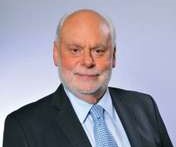 Sir Fraser Stoddart is a Scottish-born chemist who shared the 2016 Nobel Prize for Chemistry “for the design and synthesis of molecular machines”.
Sir Fraser Stoddart is a Scottish-born chemist who shared the 2016 Nobel Prize for Chemistry “for the design and synthesis of molecular machines”.
Sir Fraser is a graduate of the University of Edinburgh (BSc 1964, PhD 1967), and Fellow of the Royal Society of Edinburgh (the model for the RSNSW), and since 1997 he has worked in the USA, most recently at Northwestern University.
Sir Fraser demonstrated the efficient synthesis of a variety of mechanically interlocked molecules, thereby helping to establish a new type of bond in chemistry -- the mechanical bond. He helped to develop the template-directed protocols that could synthesise these interlocked molecules, like ‘rotaxanes’ and ‘catenanes’, in high yields. This, and similar, work established Sir Fraser as a pioneer in ‘artificial molecular machines’ –molecules that can undergo simple mechanical motion and thereby have the potential to do work on the smallest of scales! Sir Fraser has dubbed his approach ‘molecular meccano’.
In 2017 Sir Fraser joined UNSW, Sydney to realise his “New Chemistry” initiative. Visiting each year Fraser gives lectures to faculty and students and collaborates on a range of exciting chemistry projects involving the manipulation of molecules to effect devices such as switches, sensors and motors.
In addition to the Nobel Prize, Sir Fraser has been awarded many prizes and fellowships including the Albert Einstein World Award of Science (2007), Davy Medal of the Royal Society (2008) and membership of the National Academy of Sciences (USA, 2014).
Nearly 300 PhD and post-doctoral researchers have been trained in Sir Fraser’s laboratories, and he is well known for mentoring young scientists.
Professor Jill Trewhella DistFRSN FAAAS FLANL
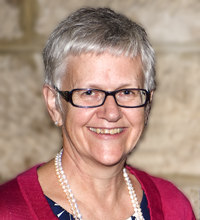 Professor Trewhella began her academic career after studying mathematics and physics at the University of NSW, where she also completed a masters degree in physics. Graduating with a doctorate in inorganic chemistry in 1980 from the University of Sydney, she accepted a post-doctoral position at Yale University, where she was appointed an associate research scientist in 1983, and in 1984, she was invited to join the Los Alamos National Laboratory to launch a biological neutron scattering program. She soon began using neutrons to study how nature regulates the activities of biological molecules. Her work gained her international recognition for her contribution to our understanding of the molecular communication that underpins healthy function. Professor Trewhella spent 20 years building multidisciplinary programs at Los Alamos where she was appointed Director of Bioscience in 2000. This work was recognised with her election as a Fellow of the American Association for the Advancement of Science and as an Australian Research Council Federation Fellow in 2004. She also gained the rare distinction of being elected Fellow of the Los Alamos National Laboratory.
Professor Trewhella began her academic career after studying mathematics and physics at the University of NSW, where she also completed a masters degree in physics. Graduating with a doctorate in inorganic chemistry in 1980 from the University of Sydney, she accepted a post-doctoral position at Yale University, where she was appointed an associate research scientist in 1983, and in 1984, she was invited to join the Los Alamos National Laboratory to launch a biological neutron scattering program. She soon began using neutrons to study how nature regulates the activities of biological molecules. Her work gained her international recognition for her contribution to our understanding of the molecular communication that underpins healthy function. Professor Trewhella spent 20 years building multidisciplinary programs at Los Alamos where she was appointed Director of Bioscience in 2000. This work was recognised with her election as a Fellow of the American Association for the Advancement of Science and as an Australian Research Council Federation Fellow in 2004. She also gained the rare distinction of being elected Fellow of the Los Alamos National Laboratory.
With her Federation Fellowship, Professor Trewhella took up joint appointments as Professor of Molecular Bioscience at the University of Sydney and at the neutron scattering research facility, the Bragg Institute, south of Sydney. From 2009 to 2015, Professor Trewhella was the Deputy Vice-Chancellor (Research) at the University of Sydney, balancing her research with her responsibility for the University’s research strategy and ensuring quality research infrastructure and professional services to support that strategy. In 2015 Jill was awarded the Tage Erlander Visiting Professorship by the Swedish Research Council and for the next three years she divided her time between the US, Australia and Sweden. While in Sweden she worked with Swedish researchers to help build expertise in structural biology with a focus on taking advantage of major research infrastructure investments in the form of the MAXIV synchrotron and the European Spallation Source, both based in Lund.
Since 2020, Jill has been in the US as COVID travel restrictions and family priorities dictated. With an Adjunct Professorship in Chemistry at the University of Utah and as Professor Emerita at Sydney, she continues working with the international structural biology community to establish standards and validation protocols for the publication of the results of integrative structural biology, where structures are determined using multiple types of experimental data and computational methods.
Professor Trewhella originally set out to train as a high school teacher, but she never dreamed that one day her career path would bring her into contact with a US President. Her decision to accept an invitation to enrol in an honours physics program at the University of NSW later resulted in her advising George W. Bush on available technologies to defend against bio-terrorism.
Professor Bruce Warren OAM DistFRSN FRCPath
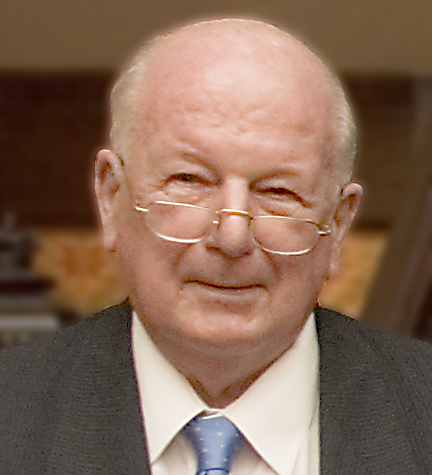 Bruce Albert Warren is a distinguished pathologist who has reached the highest levels of medical research through academic achievement, university management and publication activity. Following his medical training at the University of Sydney, he obtained a Master of Arts, Doctor of Philosophy and Doctor of Science at the University of Oxford. Following further research and teaching in Canada, Warren began a long and distinguished career as Professor and Head of Department of Pathology at the Prince Henry/Prince of Wales Hospital of the University of New South Wales in 1980, where he remained until his retirement in 1997.
Bruce Albert Warren is a distinguished pathologist who has reached the highest levels of medical research through academic achievement, university management and publication activity. Following his medical training at the University of Sydney, he obtained a Master of Arts, Doctor of Philosophy and Doctor of Science at the University of Oxford. Following further research and teaching in Canada, Warren began a long and distinguished career as Professor and Head of Department of Pathology at the Prince Henry/Prince of Wales Hospital of the University of New South Wales in 1980, where he remained until his retirement in 1997.
During his career Professor Warren published eighty-one papers, mainly concerned with tumour biology and thrombosis. He is also the author of many textbooks about basic histology and atheroembolisms and he was the editor of the Journal of the Royal College of Pathologists in Australasia from 1988 to 1995.
He is Fellow of the Australian Institute of Management, a Fellow of the Royal College of Pathologists and a Fellow of the Royal College of Pathologists of Australasia. He is Life Fellow of the Royal Microscopical Society, a Life Member of the American Association for the Advancement of Science, and was Member of the Scientific Advisory Committee of the New South Wales Division of the National Heart Foundation from 1983 to 1996.
Professor Warren served the Royal Society of New South Wales as President from 1981 to 1982 and as a Council Member from 1980 to 1981.
Fellows of the Royal Society of New South Wales
The category of Fellow recognises the substantial contribution made by members of the Society who are leaders in their fields within the disciplines of science, art, literature, and philosophy. Candidates for Fellowship may be proposed by any Member of the Society. Nominations are considered by the Fellows and Members Assessment Committee against criteria defined in Rule 10 of the Society's Rules, and Fellows are appointed by resolution of the Council and subject to review by the Members. (For more information, see Membership Categories.)
Gazettal by the New South Wales Government of Royal Society of NSW Fellows and Distinguished Fellows elected in:
- 2023 (gazetted on 12 July 2024)
- 2022 (gazetted on 23 June 2023)
- 2021 (gazetted on 11 February 2022)
- 2020 (gazetted on 12 February 2021)
- 2019 (gazetted on 26 February 2020)
- 2018 (gazetted on 31 January 2019)
- 2017 (gazetted on 6 February 2018)
Shortcuts: [A] [B] [C] [D] [E] [F] [G] [H] [I] [J] [K] [L] [M] [N] [O] [P] [Q] [R] [S] [T] [U] [V] [W] [X] [Y] [Z]
Most recently updated on 25 June 2024.
The Royal Society of New South Wales
What we do
The Royal Society of New South Wales is a non-profit organisation dedicated to enriching lives through knowledge and inquiry since 1821. Throughout our history, the Society has done much to foster studies and research in science, art, literature, and philosophy through meetings, symposia, publications, and international scientific exchange, and has supported and fostered the endeavours of other organisations dedicated to the furtherance of knowledge.
Today, the Society:
- Conducts expert lectures and presentations for the benefit of members and the general public — including monthly face-to-face and online gatherings, special events such as Ideas@theHouse in partnership with the Governor of NSW, and the annual Forum in partnership with Australia's learned academies
- Publishes a video record of its lectures, presentations, and special events on YouTube
- Publishes peer-reviewed research and scholarship through the Journal and Proceedings
- Publishes the Bulletin, a monthly newsletter for members
- Recognises excellence and achievement through the Fellowship and Distinguished Fellowship membership categories
- Awards prestigious prizes and medals that recognise outstanding achievements in research and service
- Liaises with other similar bodies
- Maintains a library that is an important part of Australia's historical heritage.
The Governor of New South Wales is the Society's Vice-Regal Patron. The Governor, jointly with the Society, convenes the Ideas@theHouse series of lectures at Government House Sydney, dedicated to the exploration of important and influential ideas. The Governor also graciously hosts the annual Forum at Government House.
Branches
The Society has its head office in Sydney and an expanding network of branches in New South Wales. Presently, these include a long-standing branch in the Southern Highlands, a branch in the Hunter region, established in 2019, and a branch in Western NSW established in 2021. Regular meetings are held in all locations and are well attended by members and visitors.
Membership
Membership of the Royal Society of New South Wales is open to any person interested in the evidence-based debate on matters of significance to humanity. Society membership brings inclusion in networks of learned researchers and professionals across a wide range of disciplines and provides opportunities to advance the evolution of science and culture in Australia. Further details of membership, including the benefits, categories of membership, and how to join the Society are available on the website.

